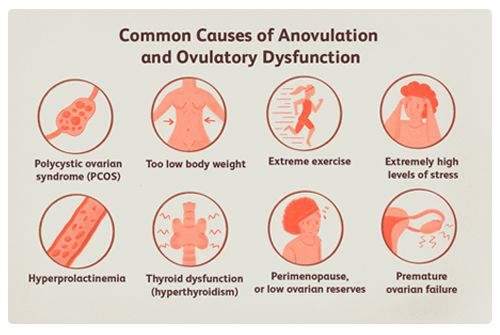
FEATURESIf there’s an infertility topic you want to learn more about or a concern you want to research, chances are one of our experts has written an article or two about it or has spoken about it in an interview.
Causes of Low Sperm Count and Motility
Medically reviewed by Leyla Bilali, RN
One of the primary causes of infertility is low sperm count and motility. These issues, coupled with poor sperm quality, represent 90% of all cases of infertility in men and anywhere from 20% to 40% in couples. Nearly one in six men are affected by infertility related to problems with their sperm. The causes can range from hereditary factors and lifestyle choices to past infections and a person's age.
Secondary Infertility Causes and Treatments
Medically reviewed by Leyla Bilali, RN
Secondary infertility is when a couple has had at least one child, is trying to get pregnant again, but doesn’t conceive after at least one year of trying. This diagnosis can be confusing and mind-boggling. You had no trouble getting pregnant last time. So, why isn’t it happening now?
Increase Your Fertility by Breaking These 8 Bad Habits
Medically reviewed by Leyla Bilali, RN
Breaking down why these 8 habits are bad for your fertility health and what you can do to change them.
Stop Staying Up Late and Start Prioritizing Sleep
Cut Back on Excessive Caffeine
Exercise But Don't Over (or Under) Do It
Problems Ejaculating for Semen Analysis
How to Cope with Performance Anxiety During Fertility Testing or Treatment
Medically reviewed by Leyla Bilali, RN
Producing a semen sample for either semen analysis or fertility treatment use may lead to the inability to ejaculate. There are several factors involved with producing the semen sample that may contribute to performance anxiety.
When to See a Fertility Doctor
Medically reviewed by Leyla Bilali, RN
Getting pregnant isn’t always easy. How long should you try to get pregnant before talking to your healthcare provider? When is it time to see a fertility specialist? It's easy to become impatient if you don’t get pregnant right away, but it's also important that you don't delay asking for help if you think you might have a fertility problem. Here are some signs that it might be time to talk with your provider.
Can Cervical Stenosis Cause Infertility?
Medically reviewed by Leyla Bilali, RN
Cervical stenosis is an uncommon but potential cause of female infertility. With cervical stenosis, the cervical opening is narrower than it should be and, in severe cases, may be completed closed. This can interfere with sperm getting to the egg and complicate fertility treatments like insemination or in vitro fertilization (IVF).
Anovulation and Ovulatory Dysfunction
Medically reviewed by Leyla Bilali, RN
Ovulation is the release of an egg from the ovary. It must occur for pregnancy to be achieved naturally. Anovulation means a lack of ovulation or absent ovulation. When ovulation is irregular—but not completely absent—it is called oligo-ovulation. Both anovulation and oligo-ovulation are types of ovulatory dysfunction. Ovulatory dysfunction is a common cause of female infertility. Up to 40% of infertile people with ovaries experience dysfunctional ovulation.
What to Do When You Can't Get Pregnant
9 Steps Every Couple Should Take
Medically reviewed by Leyla Bilali, RN
The inability to get pregnant if you've been trying for some time can be heartbreaking. But there are steps you can, and should, take. Sometimes the cause of infertility is easy to diagnose and can be treated.
Is Pregnancy After an HSG More Likely?
Medically reviewed by Leyla Bilali, RN
Pregnancy after a hysterosalpingogram (HSG) may be more likely, depending on the cause of your infertility. At least one study found that an HSG with an oil-based contrast did significantly improve pregnancy rates in specific patients. The subsequent live birth rate was likewise significantly higher.
Why Am I Not Getting Pregnant?
Medically reviewed by Leyla Bilali, RN
So, you've been trying to get pregnant for awhile, but nothing is happening. Why are you not getting pregnant? There are many possible reasons, including ovulation irregularities, structural problems in the reproductive system, low sperm count, or an underlying medical problem.
While infertility can have symptoms like irregular periods or severe menstrual cramps, the truth is that most causes of infertility are silent. Male infertility rarely has symptoms. Here are eight possible reasons you haven't conceived yet.
Fertility Together: Leyla Bilali's Path to Finding Her Passion
By Isabella Brown for Oova
Leyla Bilali has been working as a nurse in NYC for about ten years, forming real and honest relationships along the way. She is passionate about helping and supporting others. Her career began in pediatrics, at the Columbia children’s hospital and a general pediatrics office on the Upper East Side. She later transitioned to working as an IVF nurse at RMA, where she discovered her interest in fertility. When she was offered this job at RMA, Leyla did not have much experience with IVF or fertility treatments. However, she decided she wanted to learn about these practices, so she took the job. As she began working with her new patients, she learned not only of her interest in the space but of her gift of working with those facing infertility.
Fertility Clinics Stay Open Despite Unclear Guidelines
By Natalie Lampert for the New York Times
Many providers have continued seeing patients through the pandemic, forcing them to choose between clients and staff safety.
“Fertility treatment is by no means elective,” said Leyla Bilali, a nurse at a fertility clinic in New York City, referring to the consensus that infertility is a disease. “It’s just, right now, it’s not a matter of life or death.”
Hydrosalpinx: Treatment, Diagnosis, and Causes
Medically reviewed by Leyla Bilali, RN
A hydrosalpinx is a specific type of fallopian tube blockage. The fallopian tubes extend from the uterus, one on the right and one on the left. If they become blocked or infected, infertility may result. Studies have found that hydrosalpinx blockages are present in 10% to 30% of tubal infertility cases.
7 Ways Stress Can Make It Harder to Get Pregnant
Medically reviewed by Leyla Bilali, RN
Whether stress itself can make getting pregnant difficult is a matter of debate. The current thinking is that stress alone does not cause infertility. The American Society for Reproductive Medicine states in their stress and infertility pamphlet, "Even though infertility is very stressful, there isn't any proof that stress causes infertility."
When Your Access to Fertility Treatment Is Limited
Medically reviewed by Leyla Bilali, RN
Why are so many people unable to get the treatments they need? If you’re having difficulty getting infertility treatment, is there anything you can do to improve your access? And, if fertility treatment is not an option for you, what can you do to optimize your odds of pregnancy success?
12 Potential Signs You May Have a Fertility Problem
Medically reviewed by Leyla Bilali, RN
Infertility refers to how long you have been trying to conceive unsuccessfully. While there are possible early warning signs of infertility as well as risk factors (things that make it more likely you'll have difficulty getting pregnant), some couples don't have any signs or symptoms of infertility. If you do, it's important to talk to your doctor. Because of this rule of thumb, many couples wonder if they have to try to get pregnant for a whole year before they would be able to tell if there is a problem. Here are some questions you and your partner can consider if you think you might be dealing with infertility. If you answer yes to any of these questions, talk to your doctor.
What Impact Does Male Smoking Have on Sperm and Fertility?
Medically reviewed by Leyla Bilali, RN
Can smoking hurt your sperm? Yes. It can also negatively affect your fertility. You already know that smoking is bad for your health, and you have likely guessed that smoking is bad for female fertility. In both men and women, smoking has been linked to an increased risk for many cancers, heart disease, emphysema, and a number of other health problems.
How to Find the Best Fertility Clinic for You
Medically reviewed by Leyla Bilali, RN
To find the best fertility clinic for you, take time to research any clinic you consider. Don't just choose the first place that returns your call; pursuing fertility testing and treatment is a big step and can also involve big money and lots of time. You want to choose only the best.
Understanding Donor Arrangements
Medically reviewed by Leyla Bilali, RN
When choosing to use third-party reproduction technologies, one of the decisions you need to make is what kind of donor arrangement you want: known, anonymous, semi-open, or open. This decision applies to sperm, egg, and embryo donor arrangements.
The kind of arrangement you and the donor choose will have an impact not only on you, the intended parent, but also on your future child, the donor, and the donor's children (if they have any). The potential impact of your choice is good reason to carefully consider your options.
Advocate Spotlight: Leyla Bilali of Fertility Together
by Margaret Farrell, PR & Communications, Celmatix for #SaytheFword
Even with the support of a great doctor, partner, family, and friends, the day-to-day grind of infertility treatment can make any woman feel isolated. Leyla Bilali wants to help change that. A registered nurse at one of New York’s top fertility clinics (Reproductive Medicine Associates of New York), in 2017, Leyla founded Fertility Together, a personalized concierge-style service that offers women the guidance and wisdom of a medical professional whenever — and wherever — they need it. We sat down with Leyla to learn more about what inspired her to start this service, and tips she has for women everywhere as they start the treatment process.




















